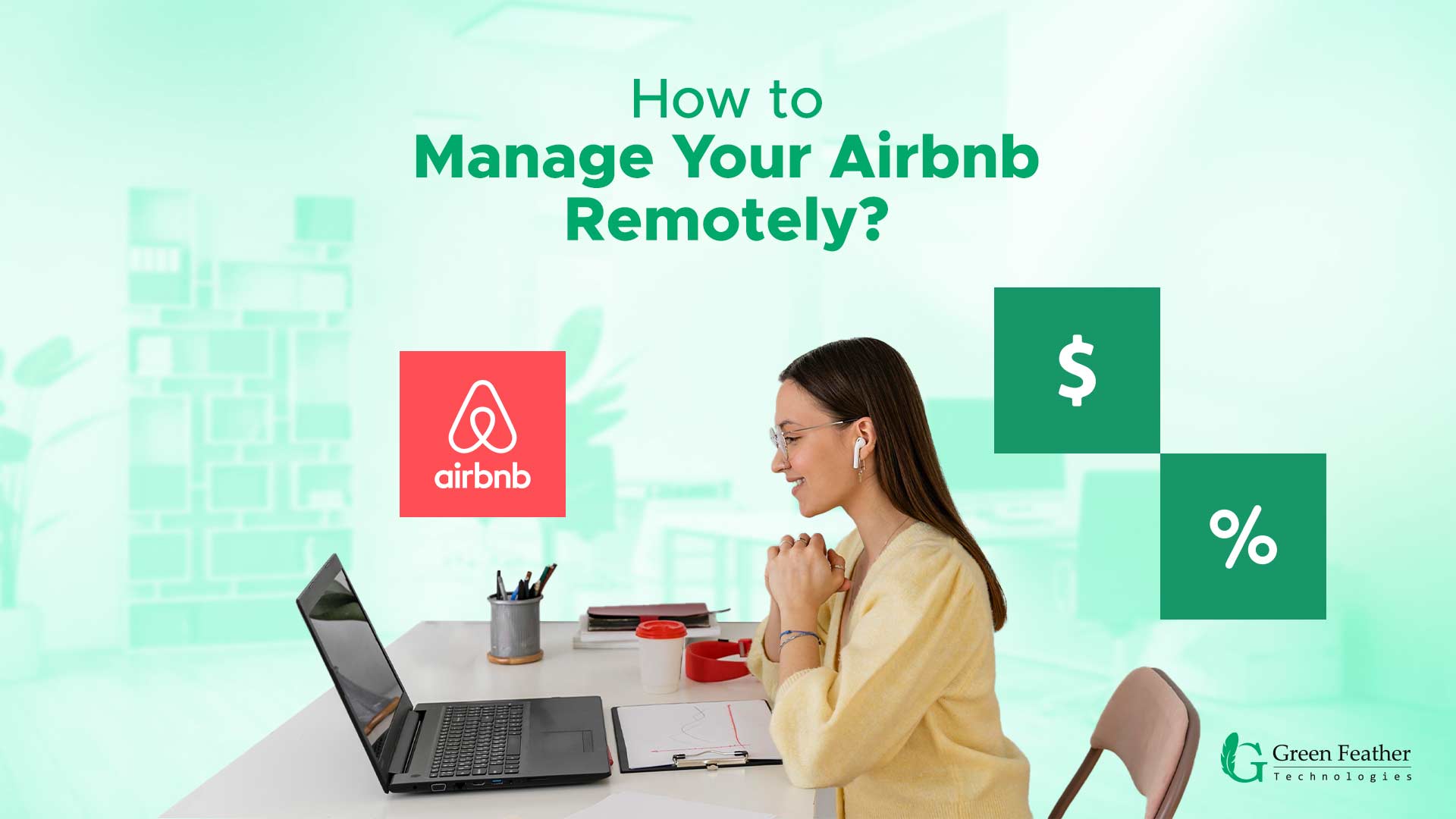One of the biggest challenges Airbnb hosts face is managing their rentals. Especially when living far from the property. Remote management can quickly become overwhelming without the right strategies in place.
After extensive research on Airbnb hosting, we’ve identified the most effective ways to manage a property remotely. By using the right tools and systems, we’ve uncovered the ultimate approach on how to manage airbnb remotely hassle-free.
The solution? These 20 essential tips. Simply follow them to maximize your efficiency and streamline your operations. The best part? You can implement every one of these strategies from anywhere in the world.
Let’s dive into remote Airbnb management!
Can You Really Manage an Airbnb Remotely?
Yes, you can! With the tools and help we have now, it’s easier than you think. You can be a great Airbnb owner even if you don’t live close.
If you know how to manage Airbnb remotely, you get benefits like:
- Travel or live anywhere and still make money
- Get more free time to make things happen
- You can grow your business in more places
- You can own places in good areas no matter where you live
- You don’t have to deal with little problems every day because you can use technology and local help
- You can set the best prices and get more people to stay from anywhere
20 Tips to Manage Airbnb Remotely

Now you know the benefits of it, and you probably want to learn how to manage your short-term rentals. So, let’s talk about 20 tips for running your Airbnb from far away.
1. Hire an Airbnb Virtual Assistant
Hiring a virtual assistant is a simple and effective way to manage your Airbnb remotely. They can handle guest inquiries, adjust pricing, and manage your listing from anywhere.
But their role isn’t limited to just these tasks. You can rely on a virtual assistant for full Airbnb management. In fact, they can assist with many of the strategies we’ll discuss below.
That’s why an Airbnb virtual assistant can be your all-in-one solution. Look for someone reliable with experience in short-term rental property management.
2. Use a Property Management App
You can use apps like Hostfully, Guesty, or Lodgify to make managing your place easier. These apps let you:
- Keep all your calendars together
- Send messages automatically
- Keep track of your money
- Manage all your tasks
Using these apps helps you do less work, no matter where you are.
3. Offer Self-Check-In
Since you won’t be there to say hello, guests must check in alone. When they book, give them easy instructions on how to get into your place. This lets them arrive whenever they want.
4. Set Up Smart Locks
It’s hard to give keys to guests when you’re far away. That’s why smart locks are helpful.
With smart locks, you can make a special code for each guest. When the guest leaves, the code stops working, and a new code is made.
Some good smart locks are August, Yale, Schlage Connect locks, and etc.
5. Automate Guest Communication
Talking to guests can be hard when you’re not there. But you can schedule messages to send automatically.
You can set up messages to be sent at different times, like:
- When they book
- Before they arrive
- When it’s time to check-in
- In the middle of their stay
- After they leave
Airbnb allows you to save message templates. But you can also use other tools like Hospitable.
6. Create a Digital Welcome Guide
You won’t be there to assist guests in person, so a welcome guide is a great idea. It makes check-in easier.
You can include the following instructions and information in the welcome guide:
- Wi-Fi passwords
- Instructions for the TV and other appliances
- Recommended places to visit nearby
- Emergency contact numbers
- House rules
Apps like Touch Stay or Host fully can help you create well-organized welcome guides that guests can access on their phones.
7. Hire a Reliable Cleaning Service
A clean Airbnb is key to attracting more guests, so having a reliable cleaning team is essential.
Look for cleaners experienced in rental home cleaning. They should work efficiently and thoroughly. Provide clear instructions on what to clean. You can set up a system in place to check their work.
8. Work with a Maintenance Team
Along with cleanliness, maintaining your Airbnb property is just as important. You should have reliable connections with local handymen, plumbers, electricians, and HVAC (heating, ventilation and air conditioning) specialists.
Build a network of professionals who can quickly handle maintenance issues. You can also arrange a retainer agreement with a property manager to keep you informed about emergencies.
9. Stock Up on Essentials
Ensuring your guests never run out of essentials is vital for their satisfaction with your Airbnb. To do that, you have to constantly stock up on essential supplies. This includes linens, towels, toilet paper, and other consumables.
Since you will manage things remotely, consider using a subscription service from any essential product distribution company. The service will replenish all the necessities at specific intervals.
10. Use Smart Home Devices
Aside from smart locks, you should also think about using home automation system for efficient management. Things like thermostats, noise monitors, and security cameras outside.
These things will help you monitor the property remotely and address the issues immediately.
11. Set Dynamic Pricing
A secret to a successful Airbnb business is dynamic pricing. You have to adjust your prices based on situations. Different factors, such as demand, seasonality, or local events, can immensely dictate the price.
There are various applications to implement dynamic pricing. Some popular ones are PriceLabs, Beyond Pricing, Wheelhouse, etc.
12. Screen Your Guests
Guest screening is your first line of defense in remote Airbnb management. Think of it as a manager for your property. Filtering guests carefully helps you avoid risky or problematic bookings.
When screening guests, look beyond just booking requests. Review their profiles thoroughly and check for:
- Verified identities
- Positive reviews from previous hosts
Don’t hesitate to ask clarifying questions about their trip. A quick conversation can reveal a lot about potential guests. It helps you avoid potential property-related issues.
13. Follow Local Rental Laws
Never ignore local rental laws when managing your Airbnb property. They may be complex, but compliance is essential.
Start by researching local licensing requirements, occupancy limits, and tax obligations. If you’re unsure about any regulations, consult a local real estate attorney. They can guide you through the legal requirements.
A small investment in legal advice can help you avoid hefty fines and serious legal issues.
14. Build a Local Support Team
A smart way to manage your Airbnb remotely is to get help from the locality. You can have a local support team prepared to help you handle property issues efficiently.
Build relationships with trustworthy neighbors, property managers, and service providers. They can become your eyes and ears for your property when you can’t be physically present there.
15. Install Security Measures
You can never compromise on the security aspect of your Airbnb, especially when managing it remotely. There are plenty of security measures you can implement for your property.
From security cameras for the exterior to doorbell cameras or noise monitoring devices. But be sure to disclose all these in your listing to comply with your guest.
16. Make House Rules Clear
Your house rules are your manifesto for remotely managing your Airbnb. Make the rules clear so that there’s no room for misinterpretation.
It’s important to include all these house rules in your listing and your welcome guide. If you are clear enough, then the likelihood of problems will decrease.
17. Encourage Guest Reviews
Reviews are more than just star ratings. They serve as digital word-of-mouth for your business. A strong review profile helps build trust and attract more guests.
Implement an automated system that gently reminds guests to leave a review after their stay. Respond to every review -positive or negative, with professionalism and grace to enhance your reputation further.
Thoughtful responses demonstrate your sincerity and commitment to guest satisfaction. Plus, they allow you to stay engaged with guests from anywhere.
18. Stay Organized with Checklists
In remote Airbnb management, checklists are your lifeline. They transform chaos into predictable, replicable success.
Create detailed checklists for every single operational aspect. It can be as follows –
- Cleaning protocols,
- Maintenance checks,
- Guest communication templates,
- Financial tracking.
If you have a team or a virtual assistant, then you can share these with them. Update them continuously based on real-world feedback.
19. Monitor and Improve Your Listing
Don’t just stick to your Airbnb listing forever. Keep changing and updating it from time to time based on different factors. You can rely on performance metrics, guest feedback, and competitor offerings to update them.
After going through the factors, see what’s working and what’s not. It can improve the listing photos, description, amenities, or pricing. Small changes can give you a significant boost in visibility and booking rates. So, try it out.
20. Scale Your Airbnb Business
Once you have one Airbnb property running smoothly, consider adding more to scale your business. The best part of managing Airbnb remotely is adding more properties without increasing your workload.
All you have to do to include more properties is use the same strategies and tactics. Doing things remotely means you do everything digitally, and the process stays the same.
Challenges of Managing Airbnb Remotely and How to Handle Them

Knowing how to manage Airbnb remotely doesn’t end with the 20 tips. You also must understand how to tackle the typical challenges you may face. Don’t worry. We are sharing those challenges and ways to deal with them below:
Challenge - 1: Emergency Situations
Dealing with emergencies when managing an Airbnb remotely is a big challenge. You are not there, so you get anxious about what’s happening. Sometimes, you may not even know what’s happening with your property.
How to Handle: To deal with such situations, you can establish clear protocols for certain urgencies.
- First, you should have emergency contact information so guests know who to contact in emergencies.
- Secondly, have a team or partner up with someone who can be there for emergencies.
Challenge - 2: Communication Delays
Remote Airbnb management becomes tricky when you’re in a different time zone. Guests expect quick responses, but your work schedule might not meet their immediate needs.
How to Handle: But thanks to all the advanced technology, you can easily handle this challenge. You just have to use innovative communication strategies. Such as:
- Set up automated messaging systems that provide instant acknowledgment of guest inquiries.
- Have a local backup contact who can respond to urgent messages during your off-hours.
- Use property management apps that offer 24/7 automated support and messaging.
Challenge - 3: Quality Control
Without regular in-person visits, maintaining consistent quality becomes a difficulty. It’s unlikely that someone else will supervise your property as sincerely and seriously as you would.
How to Handle: But you can check things to make sure your place is good. You can do things like –
- Schedule periodic virtual property inspections using video calls with your cleaning team.
- Request detailed photos and reports after each cleaning and guest turnover.
- Create comprehensive checklists that leave no room for oversight.
- Encourage guest feedback and treat each review as an opportunity for improvement.
Challenge - 4: Remote Team Management
It’s harder to run a team when everyone is far away than when they’re all together. If people don’t talk well, if no one is watching closely, and if things get confusing, your Airbnb business can have big problems.
How to Handle: The secret to handling this challenge is simple. It’s clear communication. You can use the following tactics to establish proper communication.
- Assign clear, documented standard operating procedures for every task.
- Conduct regular virtual meetings to align goals and discuss challenges.
- Use project management tools like Trello or Asana to track tasks and maintain accountability.
- Implement performance incentives that motivate your remote team.
Challenge - 5: Technology and Connectivity Issues
Here’s a scenario: What if the smart locks you installed start malfunctioning? What would you do? The same thing can happen to other technology and connectivity aspects of your Airbnb business. This becomes a massive challenge since you rely on remote management technology.
How to Handle: Navigating through the technology issues can be tricky. You can prepare for these challenges through –
- Always have backup access methods, such as storing physical keys with a trusted local contact.
- Invest in reliable, redundant smart home technologies.
- Maintain relationships with local technicians who can resolve hardware issues.
- Keep guests informed about alternative contact methods in case of tech failures.
Conclusion
There you go. Now, you know how to manage Airbnb remotely. It’s possible and rewarding if you do it right. The key here is to invest your time and utilize technology at its best.
Use the 20 tips we shared, and you will be well on your way to managing your Airbnb remotely.
FAQs
Can I have an Airbnb in a different state?
Yes! You can own and run an Airbnb in another state. You just need people nearby to help.
Is it hard to run an Airbnb?
It’s not too hard once you have a plan. It might be tricky to set up at first, but then it gets easy.
Can I run an Airbnb from my house?
Yes, you can! You can use online tools to manage it from home.
Can I pay someone to run my Airbnb?
Yes, you can hire people to help. You can hire a company or a virtual assistant, which is cheaper.
Can a property manager run my Airbnb?
Yes, many property managers know how to run Airbnb. Look for someone with experience in short-term rentals.
Do I need a paper to run an Airbnb?
It depends on where your Airbnb is. Some cities need you to have a paper or a license. Some don’t. You should ask your city or talk to a lawyer.



